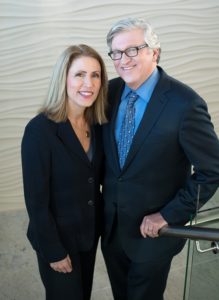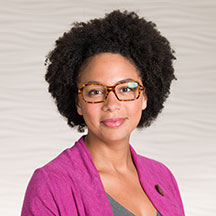Donor Spotlight:
Raikes Foundation
By bringing together the science of learning and development, improvement science and equity, could educators discover new pathways to improve schools? The Raikes Foundation’s quest to advance equity in education led them to co-create the Building Equitable Learning Environment (BELE) Network in 2016 to explore this critical line of inquiry.

Tricia and Jeff Raikes, Co-founders of Raikes Foundation
Raikes Foundation was launched in 2002 by Jeff and Tricia Raikes. The couple met at Microsoft, where Tricia led Creative Services and Jeff headed up Business. Based in Seattle, Raikes targets three areas with its philanthropy – education, expanded learning opportunities and youth homelessness – always with a focus on driving systemic change through its grantmaking, its programs and its voice. The foundation has distributed more than $65 million in grants since its inception and plans to double this figure in future years as it works to transform the systems that serve young people.
Raikes operates from the perspective that social challenges are influenced by an interconnected system of contributors. “Jeff and Tricia personally, from their experiences at Microsoft and elsewhere, have seen that the more diversity of thought and perspective and model, the better the outcomes,” said Lindsay Hill, Program Officer, Education for the Raikes Foundation, who helps catalyze and facilitate the work of the BELE Network. Hence the BELE Network brings together researchers, policymakers and practitioners from 11 different nonprofit school support organizations. And BELE is also co-designed and supported by an innovative collaboration between Raikes and four diverse learning partners, each with singular experience helping to scale movements: UChicago Consortium on School Research, The National Equity Project, PERTS (Project for Education Research That Scales), and the Billions Institute.

Lindsay Hill, Program Officer, Education for the Raikes Foundation
An important goal Raikes has set for the BELE Network is to develop a set of research-based, scalable practices, tools and interventions that can be adapted by schools and districts across the country, in addition to recommendations for the policy, teacher preparation and teacher professional development sectors. There are also hopes that the network community structure itself will prove of value to the field. Raikes plans to leverage learnings and prototypes that emerge from BELE to attract new philanthropic support. According to Hill, “A big part of Jeff and Tricia’s philosophy about funding is that they want to be catalytic. They want their investments to encourage or unlock other funding, public and private. What the BELE network organizations are grappling with is incredible. If other organizations, partners and funders can have access to that journey, that’s an incredible asset.”
Turnaround for Children is a proud member of the BELE Network, thanks to the Raikes Foundation’s strong support. The roster includes Equal Opportunity Schools, Teacher Excellence Network, Office of Equity Oakland USD, BARR, Umoia, The Network for College Success, EduGuide, EL Education, Summit Basecamp and Transcend. Raikes intentionally structured the BELE Network member selection process as a request for learning: “We didn’t want organizations to tell us what they wanted to do, we wanted to hear what they most needed to learn to fulfill their missions,” said Hill. ““We also wanted organizations to identify the student population they currently serve least well. By leaning into the data and improving outcomes for young people situated furthest from opportunity, these organizations should learn lessons that can improve their overall model and help them achieve better outcomes for all students.”
What attracted Raikes to Turnaround for Children as a member of BELE? “What stood out most about Turnaround was a deep understanding of trauma and a strong operating framework. Turnaround has taken such a thoughtful approach to scale; we felt that the benefit to the organization and to the network could be extremely powerful,” said Hill. “Turnaround brings such an important perspective – the impact of trauma on young people cannot be overstated in terms of how it impacts their ability to learn. When we think about why some gaps have been exacerbated over the last few decades instead of closed, imagine a kid who’s encountering extreme trauma, then being held to a “no excuses” discipline policy and standardized tests that could determine their entire futures. We’ve missed that within education, and Turnaround for Children has partnered with schools to address it and amplified the conversation nationally as well.”
A highlight thus far for Turnaround’s BELE team was Shadow a Student Day, where each participant selected a student in one of the schools served by their organization to shadow for an entire school day. According to Gisele Shorter, M.P.A, Ed.D., Turnaround’s Executive Director, New York and New Jersey and project leader for the BELE Network, “There were a series of “a-has” that we came to from shadowing a student for a day as a neutral observer and really seeing what it’s like to walk in their shoes and experience school as they do, including self-contained classes – what it’s like to experience the adults in a system that is not set up for them to succeed. It totally changed my lens on the impact that we’re having.” Hill hopes that Raikes and the BELE Network learning partners can ultimately bring tools, such as the protocol for Shadow a Student Day, to many more organizations.
“BELE has been an incredibly helpful and timely exercise” in Dr. Shorter’s view. “Being a part of BELE means Turnaround is being pushed to unpack who is best and least-well-served by our model and what we can do to get the least-well-served closer to opportunity and achievement.” The BELE Network has made a commitment to improving services for the students its member organizations currently serve least well because through serving the most underserved populations, greater learnings can emerge for all: “What you learn from studying those who are most negatively-impacted by a system or tool” said Hill, “will have a valuable impact for everyone as well.”
Turnaround for Children is honored to be a member of the BELE Network and grateful to the Raikes Foundation for its critical support.

Share This Story